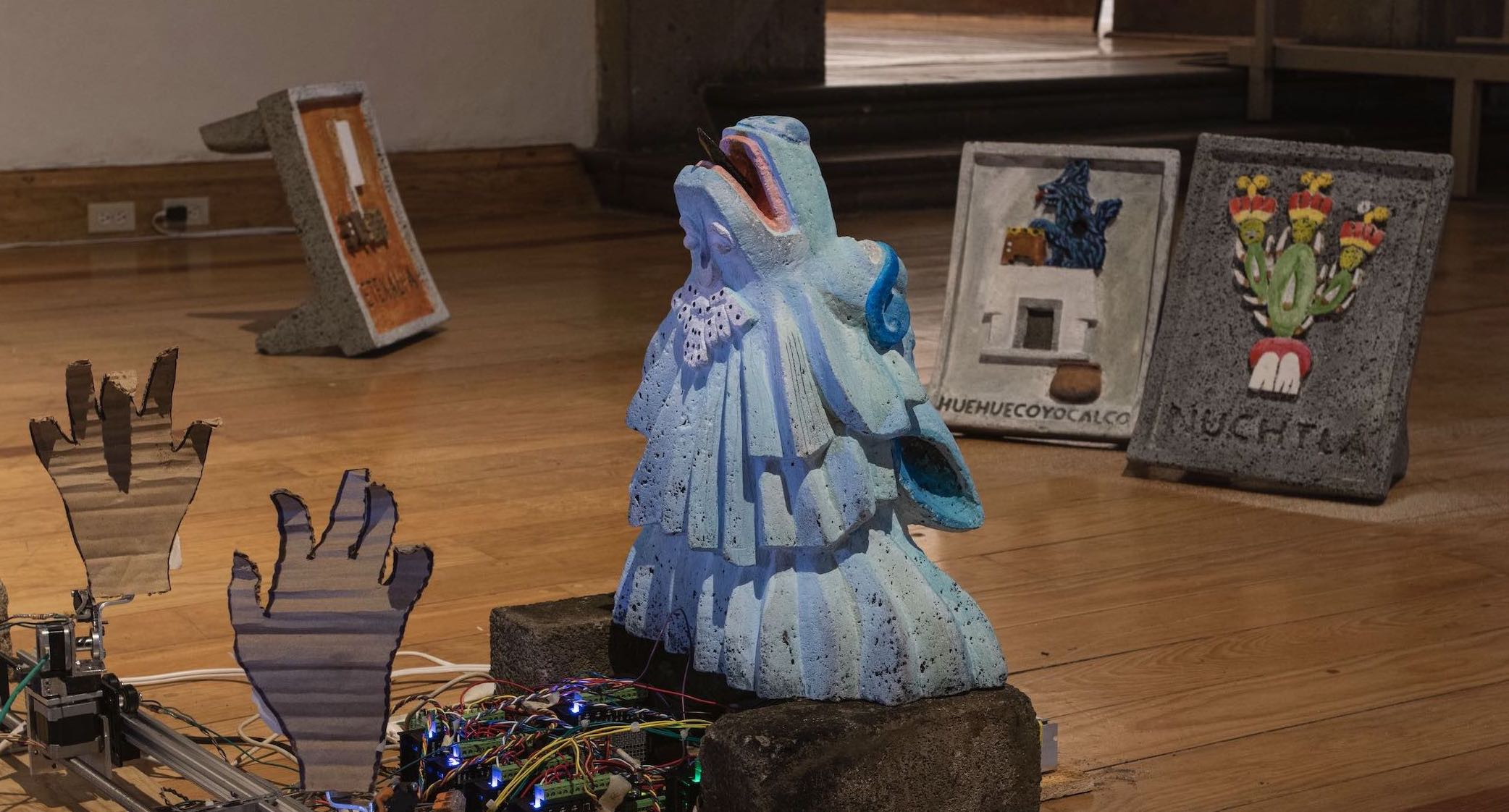
Essay
Where the Mountains Crop the Sky: An Essay on 'Escucha profunda: prácticas desde el mundo al revés'
by Antonia Alarcón
Laboratorio Arte Alameda
Reading time
6 min
It’s not enough
deciding to open.
You must plunge your fingers
into your navel, with your own two hands
split open,
spill out the lizards and horned toads,
the orchids and the sunflowers,
turn the maze inside out.
Shake it.
– Gloria Anzaldúa
Before, when the body was a body, the feet would read territories without naming them, since in walking through them they were not appreciated. The body was a body because it was surrounded by meadows, insects, and spirits. The body was a body only with other bodies, in a weaving of flesh; all the hands made a basin, gathering waters. Taking out the hand meant subterranean escape—loss—but the container was all of us. That time which was before is sometimes now, and it also exists when we are not looking at it.
The exhibition Escucha profunda: prácticas hacia el mundo al revés [Deep Listening: Practices toward the Upside-Down World] intertwines four narratives of worlds serving as alternatives to the hegemonic one, and turns its gaze toward worlds that apparently exist in parallel, but that coexist on the same loom as cities, in resistance to present historic time. They manage to peer through cracks in the sidewalk in order to propose other ways of relating to our environment. The artists Yutsil, María Sosa, Naomi Rincón Gallardo, and Fernando Palma Rodríguez bring these worlds to the fore with four monographic pieces exhibited at Laboratorio Arte Alameda (LAA), in our capital’s Historic Center, a place where a plurality of worlds converge every day.
With the creation of the mestizo identity, ethnicities and backgrounds were homogenized under the great name of “Mexico,” thus squashing all other cultures converging in the territories. In reaction, these artists question the encounter with our surroundings, the process of decolonization, and the post-mestizo condition covering present-day Mexico: If we are not mestizxs, then what are we? The possibilities expand when we break with names and find new, more plural ones.
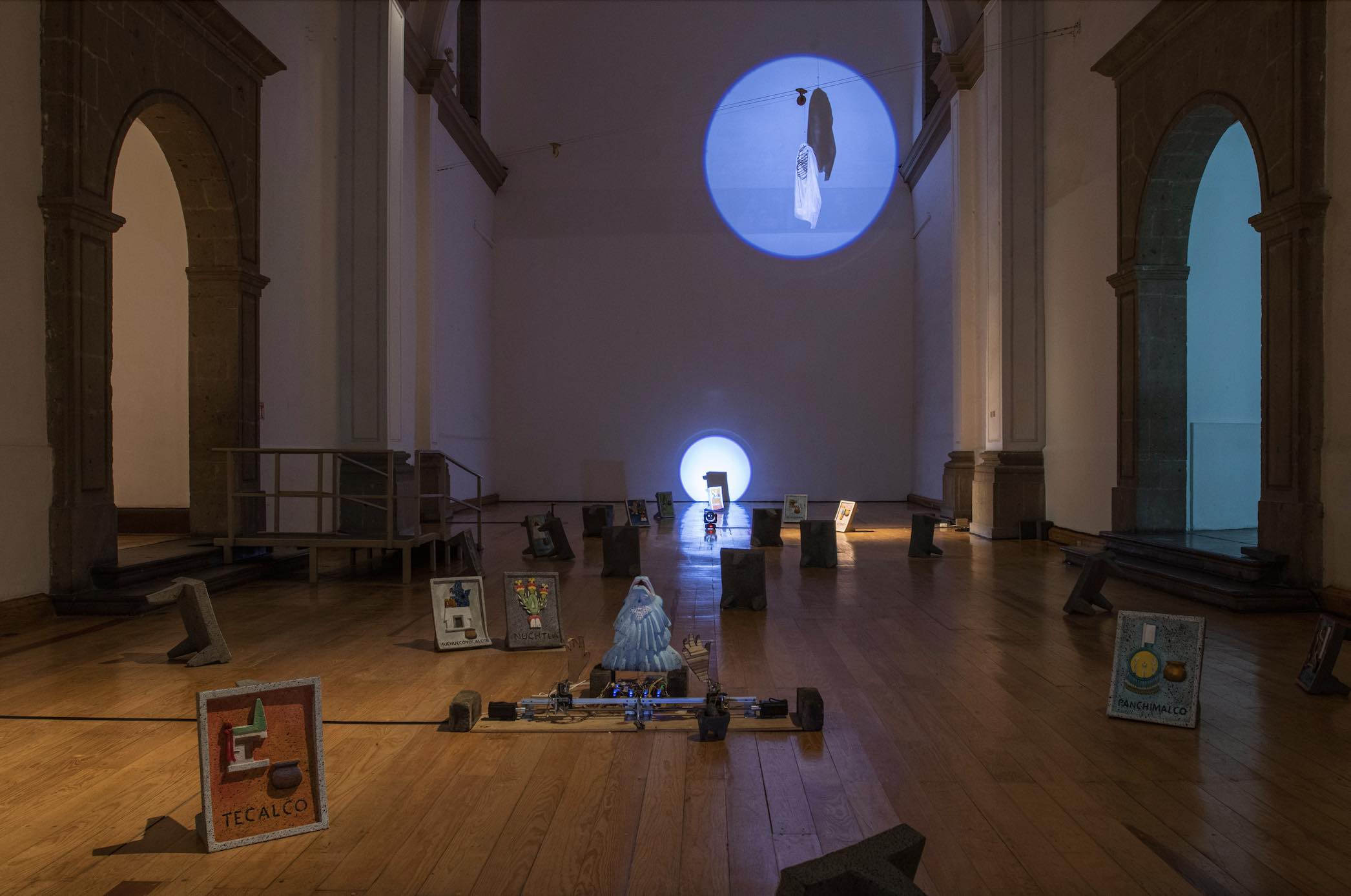
The exhibition, owing to its nature as a series of monographs, functions as a constellation of paths in which colonial violence and its consequences are questioned and rethought. Upon crossing the threshold into LAA, one leaves behind the noise of the Alameda in order to enter the mystical halo inherited from this convent that is now the Laboratorio. Named Tlazohuelmanaz—meaning “love offering” in Nahuatl—the piece by Fernando Palma Rodríguez welcomes you at the entrance with a change of religious time. In his installation, several metates [grindstones] engraved with Nahuatl names of sites in Milpa Alta allude to their hieroglyphic origin: the names are constructed from the characteristics of the spaces. Many of these places no longer preserve those aspects that once gave them their names, though they continue to exist via the word. Names are a space in themselves and it is through enunciation that they are called to existence yet again. Thus, the metates constitute a piece of memory that is activated through speech.
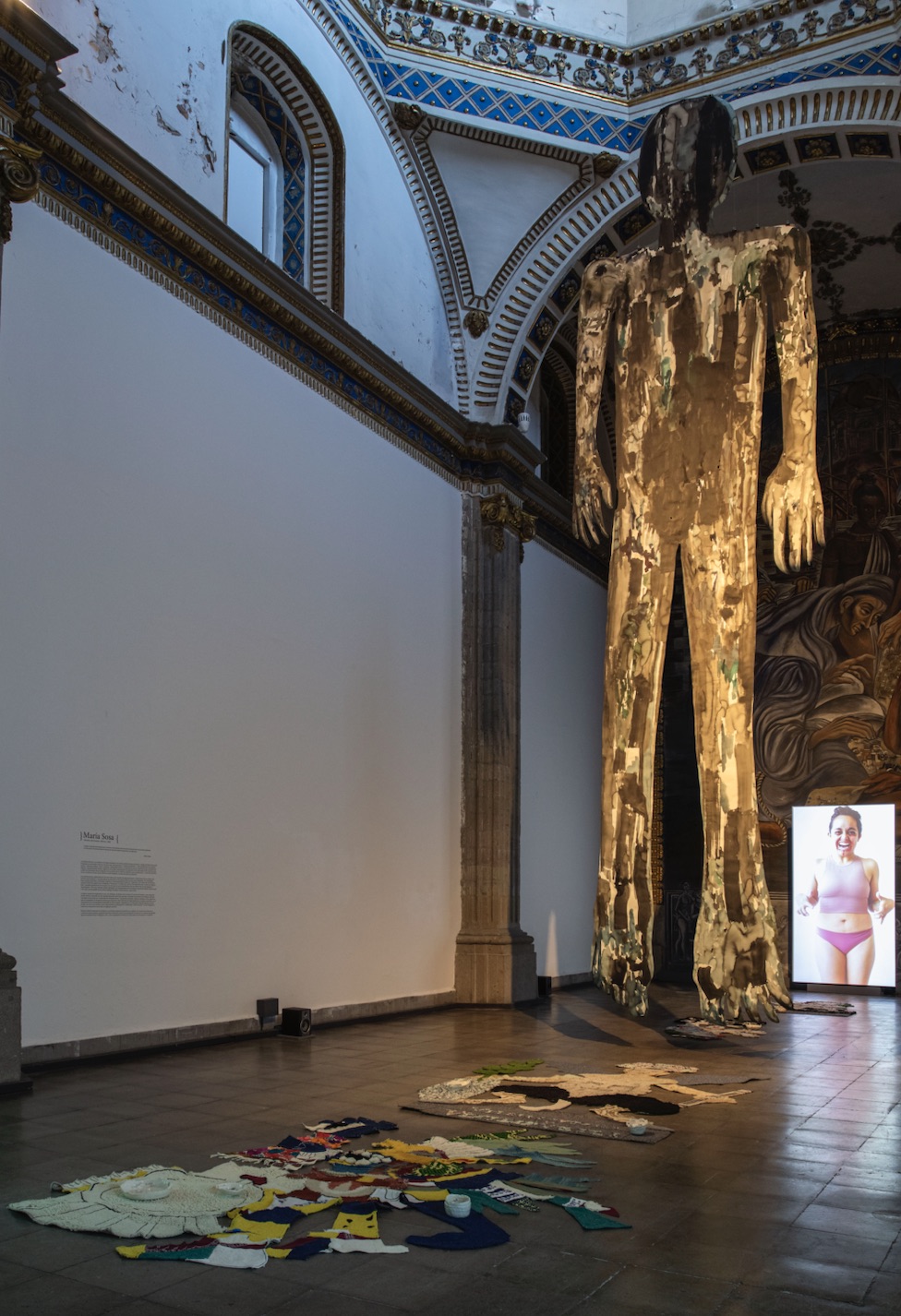
The proposal by María Sosa, a latticework of videos, ceramics, textiles, and installation, has us enter into the ceremonial space called Capilla de dolores [Chapel of Sorrows], in which different rituals of colonization and healing from violence take place. I wonder: What happens if you pray to a pain/sorrow? How does it answer you? What do you ask of it? Or is it the pain that is praying for you? In the center stands the image of Ch’ulel, which the Tzotzil and Tzeltal peoples of the Chiapas Highlands conceive of as the soul—something that is not individual but rather plural, since there the souls of all beings converge. Faced with this image, it seems that Sosa offers her ritual as a collective act in which, based on its catharsis, she seeks to heal all of us making up that interweaving of souls.
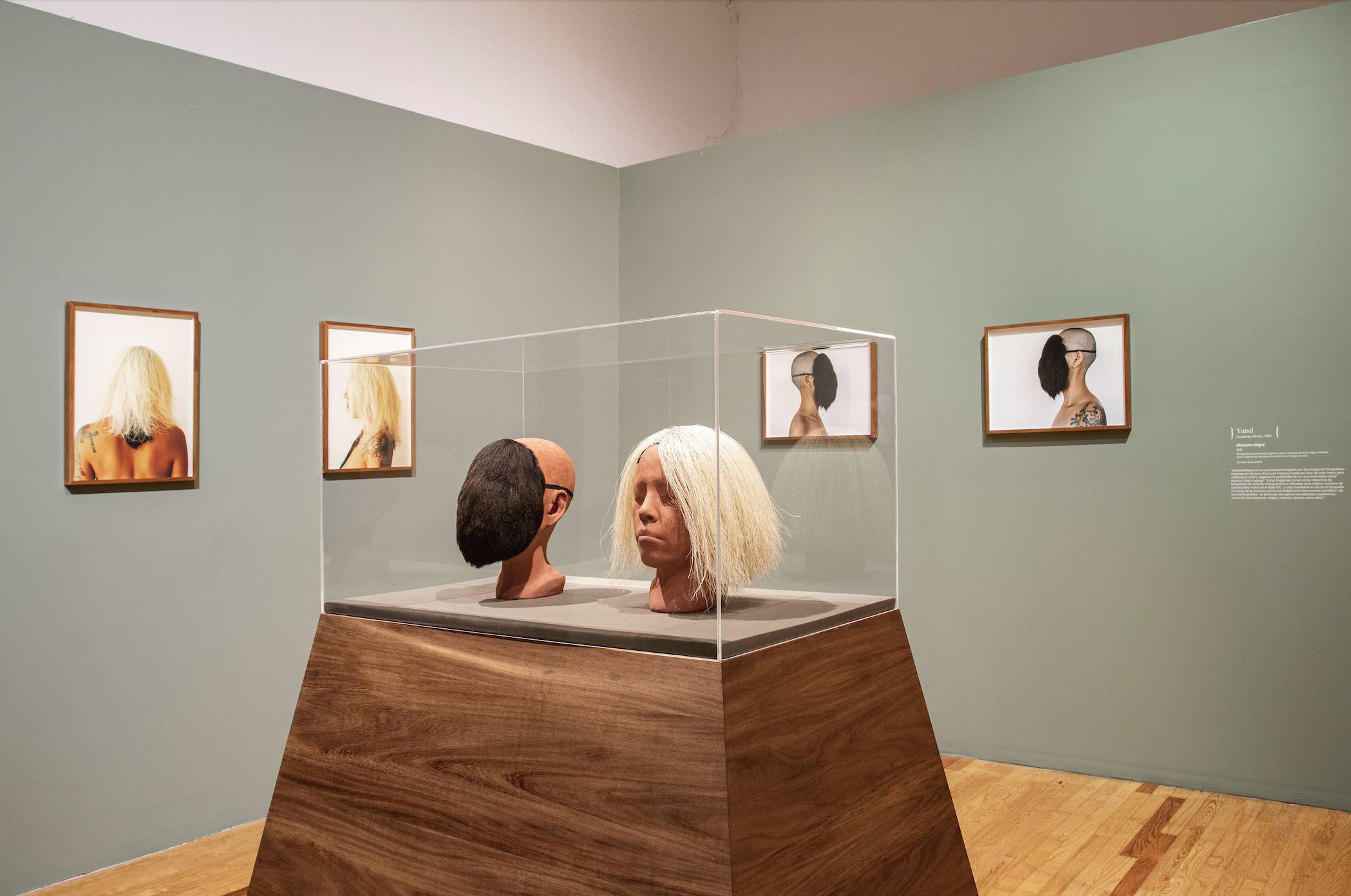
They say that bones carry the memories of our ancestors. The artist Yutsil seeks to question the machista and colonizing beliefs rooted in our Mexican psyche, which, as racist, have taken away from us the possibility of encountering the plurality making up our “mestizo” identity. By appropriating the languages of museums and ethnographic studies, the artist uses her own body to question the way in which a vertical narrative has been constructed regarding subaltern groups. She is inscribed in the narrative of her inherited Mixtec identity in order to assert herself into rituals and traditions from fiction. With this, Yutsil takes control of her story through satire and the empowerment that arises when that story is written in her own hand.
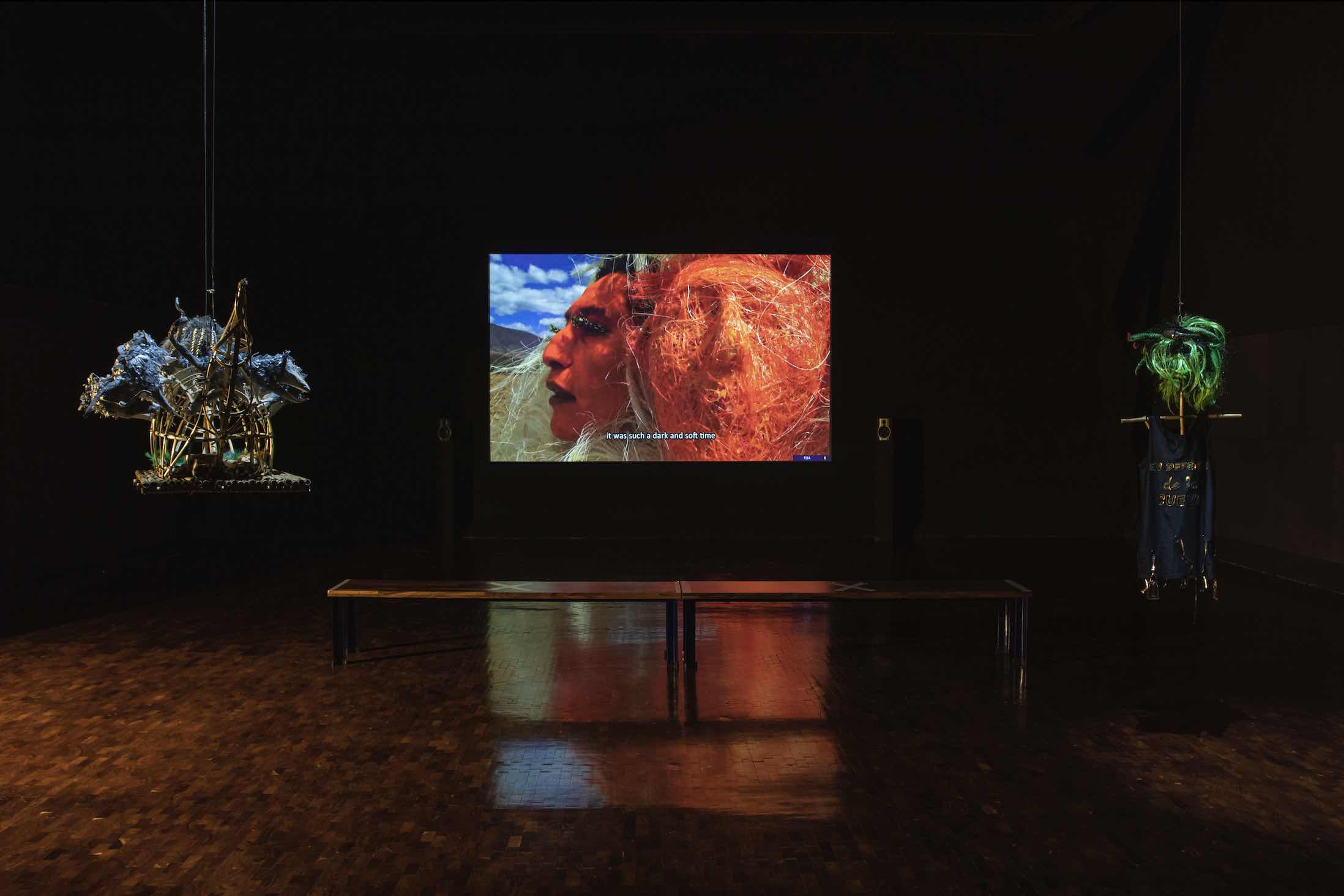
Entering Naomi Rincón Gallardo’s space is like entering a ceremony/party in which colors and music are used, via queer feminism, to denounce dispossession. It is indeed a celebration, as her piece Resiliencia Tlacuache [Possum Resilience] is dedicated to Rosalinda Dionisio, defender of the Ocotlán Valley, Oaxaca. Rosalinda herself gives the piece its name, since she says that those who defend the territories are tough, enduring peoples, like possums. The possum, mother of a thousand teats, who carries her entire herd on her back. Possums, who carry in their loins the territory: the people inhabiting it, the vegetation, the water, the animals, the stones. Rincón Gallardo sings in her video in order to highlight the conditions of expropriation that are lived throughout different parts of the country and where populations in resistance fight every day for the preservation of the ecosystem and of homes for beings and people. In the same rap, the artist tells the story of Rosalinda, who, in her resistance in defense of water and against mining in Oaxaca, received a bullet in the leg. Despite this, she continues with her protection work. This work of struggle is founded on a policy that goes beyond parties: it comes from ancestors, from affection for the environment, mapadres [mother-fathers] who teach that the earth and everything alive is to be cared for, and, thus, defended. An ode to possum love.
At the end of it all, the body remains a body, even if it is crushed by the city or by hegemony. There are those who put their bodies forward every day to defend all: the inappropriable, the sacred, the world. Within the proposals of Escucha profunda, I come to hear that there is not a single reversal of the world. There are pluralities that exist in as many ways as there are beings. Understanding these possibilities can lead us to conceive of coexistence among our ecosystems and communities in a more horizontal way. We need fewer certainties and more directions in order to continue deconstructing the world. In those spaces, the territories also look at us: they are the places where the mountains’ profiles still crop the sky.
Translated to English by Byron Davies
The exhibition will remain open until February 13th, 2022.
Published on January 13 2022